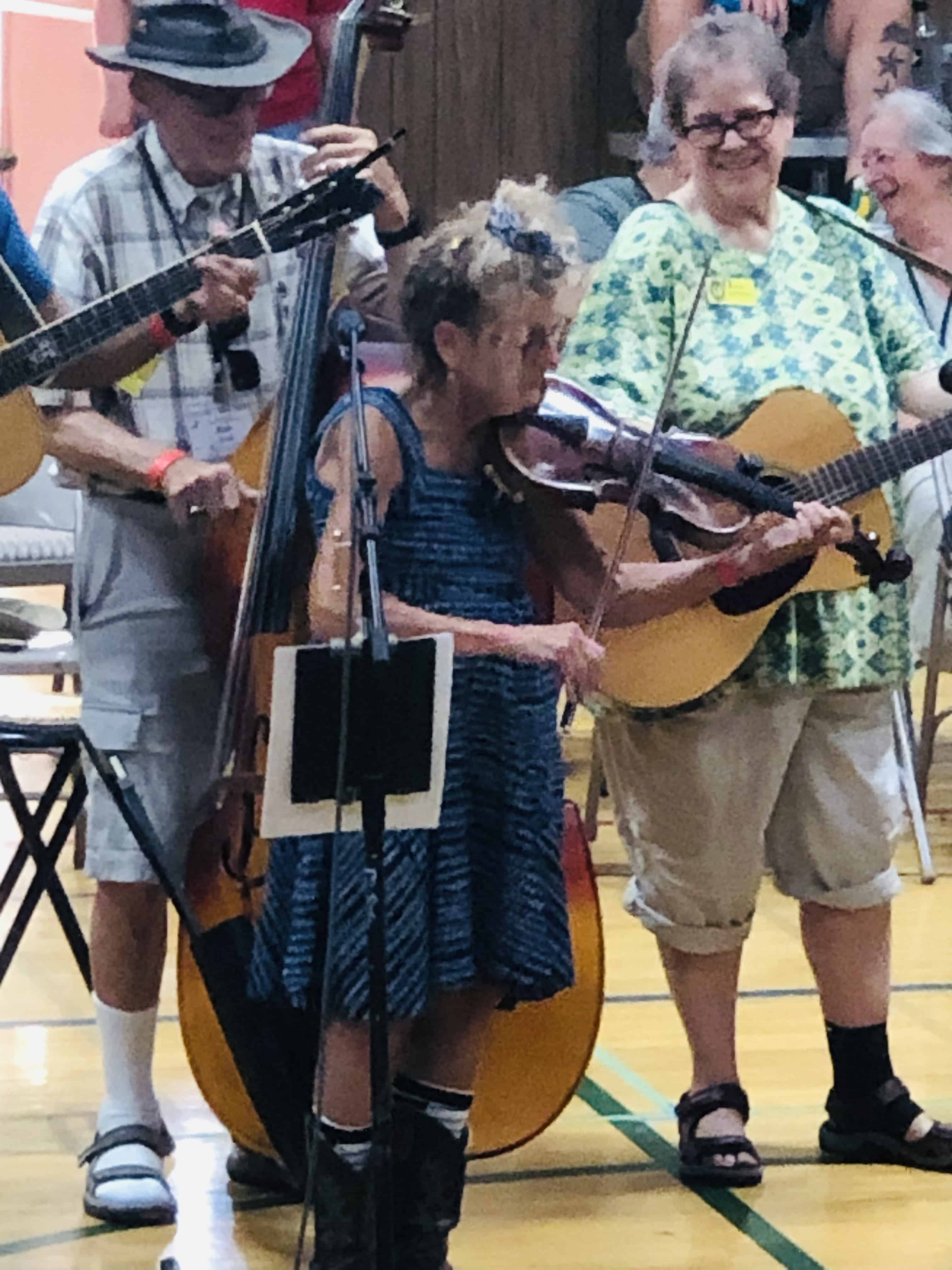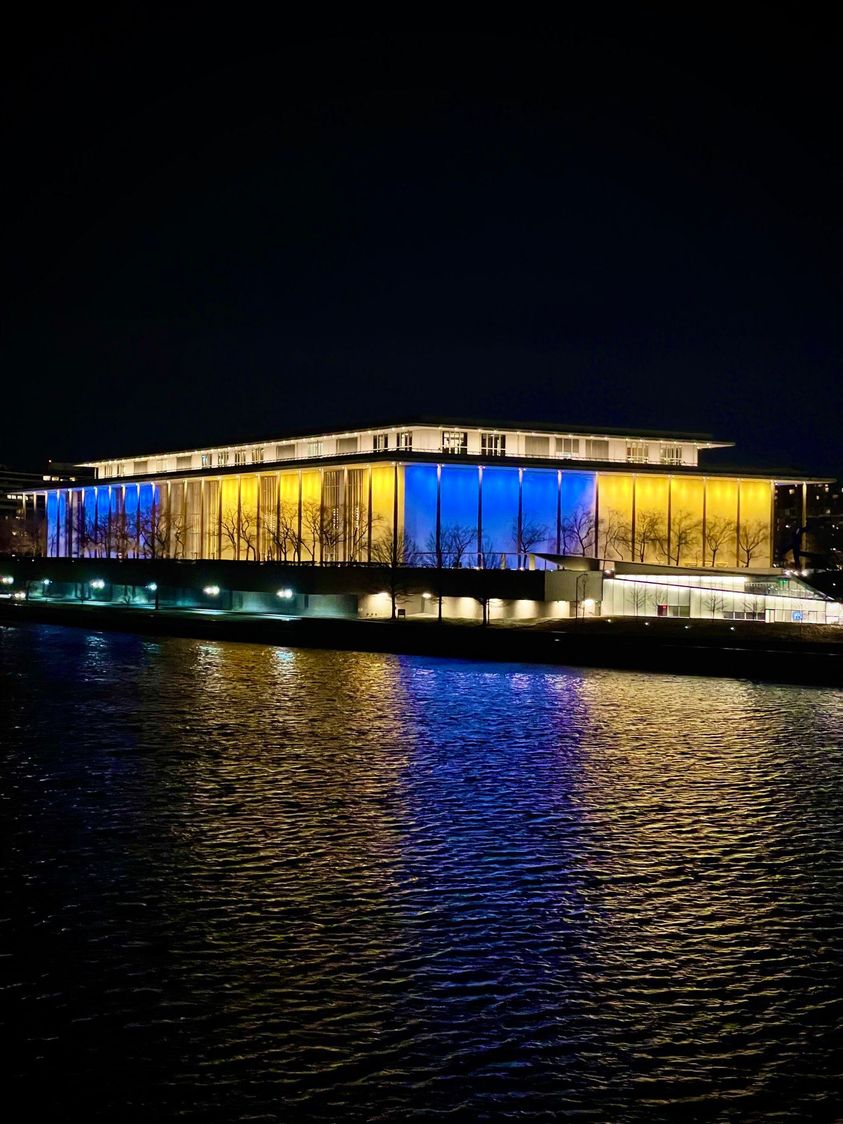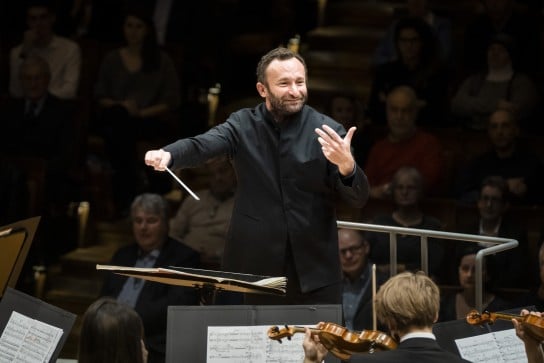Remember when festivals used to be fun?
NewsNow, the big ones are mostly about global politics and box-office worries.
Our string quartet columnist Anthea Kreston has gone back to the fun side:
It’s our second year at the Oregon Old-Time Fiddlers’ Summer Camp, in Pleasant Hills, Oregon. About 200 of us are camped in a flat, hot field abutting a grove of Douglas Firs belonging to the rather down-at-the-heals Emerald Christian Academy. We are fearlessly lead by a motley group of instructors with a median age of somewhere between 75 and 105, judging from the stories of childhoods with no running water, lists of recent health issues combined with forgetting where the double bass is parked.
Students range from 2 years old to 80, coming from a 500 mile radius, in campers, old pickup trucks and SUV’s, carrying banjos, fiddles, basses, ukuleles and guitars. From many walks of life, I have met farmers, retired professionals, and university professors, some wearing home-made clothing, cowboy hats and boots, or cutoffs and Nirvana t-shirts. Green-haired adolescents and mothers with long braids join in ad-hoc circle jams well before and after the sun has gone down. In the evenings, after country dancing in the gym, the kids play outside while parents play their instruments around the campsites, all eventually coming back to sleep when they feel like their day is done.
I had, looking back on it, what I would call a burn-out after graduating from music school. I just couldn’t wrap my head around it any longer. The endless practice, the minutiae, the relentless self-scrutiny. The crushing comparisons to everyone above you, and smug feelings when comparing anyone below you. I was crippled by self-doubt, and I couldn’t even bring myself to practice at school anymore, convinced that there would be someone outside my door wondering how I had gotten into the school, embarrassed on my behalf at my clumsy attempts at improvement. Some of this was imagined, but much was not, as I can attest by my own gleeful feelings when I saw someone playing violin who hadn’t had the exposure to high-level teaching that I had, or who didn’t have the discipline (I thought) to reach a higher level of skill. It’s all kindof baked in, a sick cycle the ensures both self-doubt and feelings of superiority.
We live in an area of the country that understands and appreciates (it seems to me) fiddle music measurably above classical music. Or actually any kind of music besides classical, where most concerts come with spoken explanations between each piece, a light educational feel. And it’s no wonder, in this land of Lewis and Clark, Old European music seems about as relevant and real as a zombie thriller.
It’s this week, here, in this hot dusty place, that I find musical freedom. Not more satisfying than playing with my old quartet in the Concertgebouw, but a full liberated, pure enjoyment of the simplicity of sound. Daily workshops in bluegrass, line dancing, intro to ukulele, and rhythm guitar are punctuated by cookie breaks and freeze tag. I play mandolin, flat-pick guitar, cello and bass, basically anything besides violin, and I travel from room to room, learning a chord progression here, a tune there, and getting to know this group of people who I will never, ever see at a quartet concert. People with joy, with not an iota of self-scrutiny, feeling their way, adding as much or as little into the group (often just sitting out until they get a feel for the tune), experts and novices play together, helping out with a pointer if asked, sharing stories and just being together.
This mix for me is what gives me happiness – I teach at the university, play in a string quartet, and watch my children grow up in a musical environment where they can be free. Last week, a commenter on this site implied that I was not qualified to be talking about classical music, that I was not a high enough level of musician. It is to this person that I write today, not in anger, rather in the hopes that we can all find the effervescent core of music, in whatever form and wherever we desire, without judgement of others or ourselves.
(c) Anthea Kreston






Comments